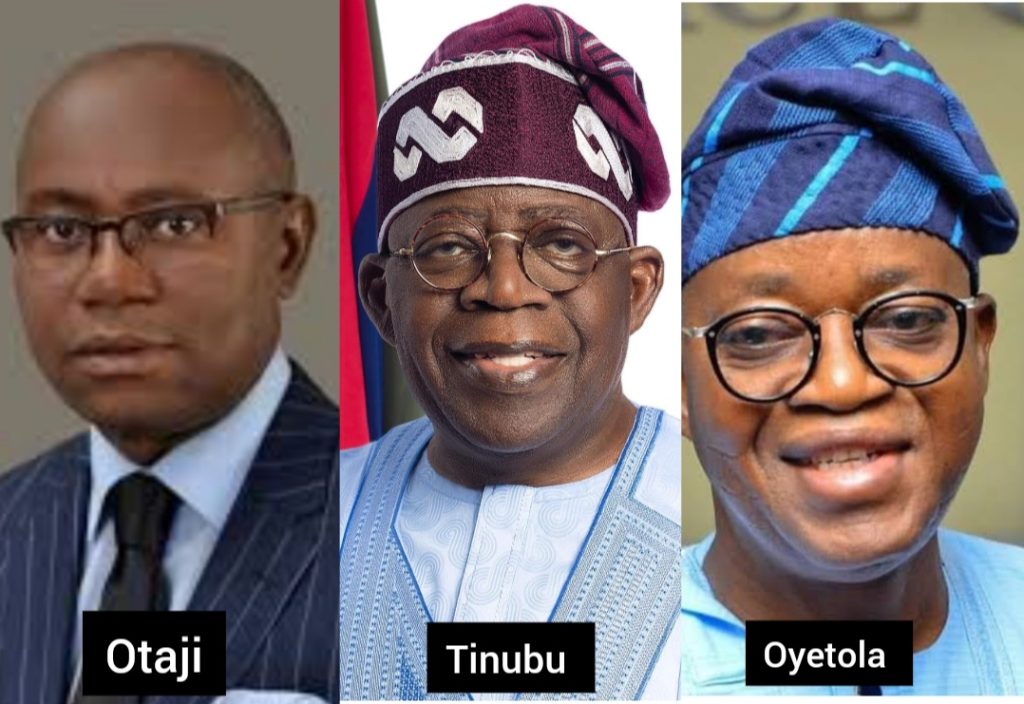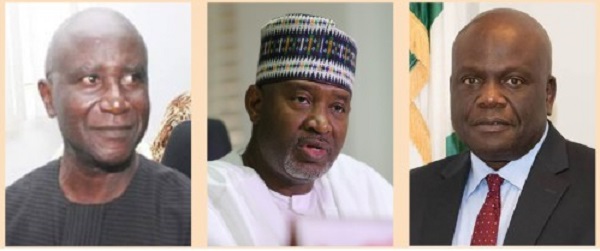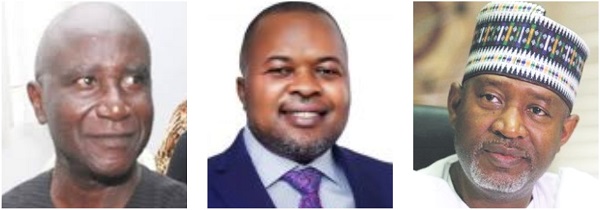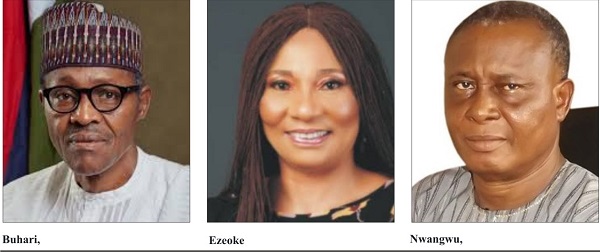Many Odds Against Nigeria’s Annual $296billion Blue Economy Expected Revenue

In Nigeria, Blue Economy has been gaining traction since President Bola Tinubu’s administration created a Ministry of Marine and Blue Economy. But the challenges it presents to leadership are numerous and seemingly more difficult to track and confront than its amorphous or multi-sectoral nature.
To the United Nations, it is a veritable tool for food security, poverty alleviation, social inclusion and sustainable living for developing countries which are overburdened with excess debt overhang and poverty crisis. But it has admitted that developing countries may not be able to maximize the potentials due to limitations.
Blue Economy was propelled by social change, so it is a transition from agro-based economy to a sustainable ocean-based economy similar to from industrial age to digital age underscored by technology
When the United Nations(UN) first introduced the words, ”blue economy” at a conference in 2012 to underline sustainable management of the marine ecosystems and emphasize the scientific findings that the earth’s resources are limited and that the greenhouse gases are damaging the planet, pollution, unsustainable fishing, habitat destruction, among others, harm the marine life, the global body was driven by the need to have a protective intervention initiative that could protect the planet, people and businesses sustainably. Hence, blue economy is a nexus between sustainability, economics and the oceans.
This UN report could not agree less on why Blue Economy was founded: “40 per cent of the world’s population live near coastal areas, more than 3 billion people utilize the oceans for their livelihood, and 80 per cent of world trade is achieved using the seas. The oceans, seas and coastal areas contribute to food security and poverty eradication. And yet, the oceans are under severe threat by human activities, where economic profit are at the expense of environmental degradation. Acidification, pollution, ocean warming, eutrophication and fishery collapse are just some of the examples of the consequences on the marine ecosystems. These threats are detrimental to the planet and are long-term repercussions that demand urgent action to protect the oceans and the people who depend on them.”
Out of a total global blue economy annual value of $1.5trillion, Nigeria has an estimated annual market share of $296billion, waiting to be maximized. The question remains: How prepared is Nigeria to pull this through?
Speaking to MMS Plus,Dr. Emi Membere-Otaji, chief executive officer, Elshcon Nigeria Limited, has this fears: “The blue economy is the way to go. There are blue economy related activities taking place in the country before the creation of the ministry. All that it requires now is coordination to properly harness them. It also requires foundation, continuation and implementation. This will be the problem. You will still have maritime running solo as it has been. You have other blue economy deliverables like the hydro, power, fishing and offshore oil and gas activities, among others.
Membere-Otaji, a multi-sectoral entrepreneur who is also into shipbuilding and repairs added, “But my fear is implementation. It is beyond maritime and so even with the ministry created it requires coordination. Talking about the potentials in monetary values, there are a lot of the offshore sites that needs to be developed. As for fishing, our fishing industry has not been well harnessed; we are still importing, doing catfish in ponds. So, there are many things that we can harness. So, we should not do a flash in the pan thing. It is just like the world waking up to say this ocean and rivers that have been with us for centuries, we want to harness the resources by coordination. That is the blue economy. It goes beyond seminar presentations. The coordination will entail giving it a strong political will. It can be part of our national economic agenda”
While this fear of failure rages, stakeholders expected that enormity of the challenges before the nation with regards to blue economy demands a presidential coordinating committee to provide a seamless collaboration with all the integrating ministries and agencies. Surprisingly, too, the Ministry is yet to come with any strategy or implementation agenda.
The President of Ship Owners Association of Nigeria(SOAN), Dr. MkGeorge Onyung said this much as he called on the Minister to unveil his strategy and team.
”The Minister needs to have a team in place before getting players. He is the Coach. You need to appoint a Coach first, then assemble a team and then equip them with boot. Those who don’t wear soccer boot don’t play international football. By this, you know you have a winning team that is ready to win. The point is, you have a Coach, a player cannot be talking. They should give us the tools and let’s play. This is the gospel we should be singing.
“He may not have a strategy but it is not what he says that will determine the strategy. We have had promises from Ministers on CVFF disbursement but nothing happened. We have to face reality now. However, the Minister needs to present his strategy for the blue economy. He has none yet. Try and engage him to present his strategy.”
In response to this, the Minister of Marine and Blue Economy,Adegboyega Oyetola, has said that plans were on top gear to launch a road map for the marine and blue economy sector, admitting that chatting a policy agenda for the sector is critical to transforming the sector.
Prince Olayiwola Shittu, former President of the Association of Nigerian Licensed Customs Agents (ANLCA) has still not come to terms, like many stakeholders, with the meaning of blue economy in Nigerian context.”What is the ultimate aim of naming a process blue economy if it utilizing the marine resources that we have in this country, we don’t have to make noise about it? All we have to do is to fine-tune the process. The late Margaret Orakwusi fought a good fight over fishing rights and the inability of local operators of these trawlers to maintain their vessels because of high duty”.
Speaking as a guest speaker at a one-day workshop on Blue Economy organized by the Nigeria Immigration Service(NIM) Rivers State Command with the theme:”The Coastal State of Rivers and Benefits of the Blue Economy:Stakeholders Perspective,” Dr. Membere-Otaji highlighted the coastal and ocean strength of the nation as well as the opportunities inherent in the blue economy.
He said:”Nigeria coastal line stretches at about 850kilometers or 420 nautical miles with 200 nautical miles of Exclusive Economic ones (EEZ), and about 10,000km of navigable inland waters. Nigeria is therefore well positioned in the domain of the Blue Economy. However, in the midst of all opportunities and derivables in the Blue Economy, Nigeria has been going through socio economic challenges.
While conversations have been on going, on Blue Economy within the confines of the Federal Ministry of Transportation and its Agencies in recent years in Nigeria, it took the bold move of the present Federal Government to create a Ministry of Maritime and Blue Economy.
He applauded the robust ongoing conversation on blue economy however noted that there “Still need inter-ministerial coordination from the Presidency since Blue Economy cut across many ministries Blue Economy is represented by three interconnected pillars of economic (the economic value and usefulness of the marine domain), social equity (employment and poverty reduction, with the attendant curbing of insecurity and youth restiveness) and environmental preservation.
“Globally, Blue Economy is estimated to be worth more than US$1.5trillion dollars per year. Over 90 per cent of global trade is sea Bourne, while even in Nigeria increasingly offshore production is accounting for the nation’s crude oil and gas production.
Rivers State, he added, is not only a coastal state, but has many rivers and creeks and thus stands to benefit from the immense advantages of the Blue Economy. While for centuries, the people have been involved one way or the other in the Blue Economy, it is now time to intentionally harness the full values of the Blue Economy, with the strong support of the political, public and private sector leaders, to upscale the benefits therefrom.
According to him, “Since 1956, most commercial crude exploration and production in Nigeria, especially in the old Rivers State has been from the creeks and rivers, while artisanal fishing had been the source of economic survival of the people, water transportation by ferries, canoes and other types of boats have remained key means of movement of goods and people and solid minerals mining in the form of sand dredging from the rivers had been supporting some industries (like glass manufacturing), land reclamation and civil construction. Kainji and other dams in Nigeria had been the source of clean hydropower.
“Nigeria’s Gross Domestic Product (GDP), Growth is only about 2.5% in second quarter 2023 according to the National Bureau of Statistics(NBS), lower from 3.54% in first quarter 2022. While the country’s economy is not in recession, it is weak and can be described as being in stagflation with the high inflation rate of 25.80% in August 2023.
“In the Blue Economy, the aforementioned economic activities will and should be improved upon for aggressive commercial purposes to diversify and grow the nation’s economy
“ There is therefore, no better time than now for Rivers State and indeed the geographical Niger Delta area to sustainably harness the full commercial benefits of the Blue Economy, to diversify and grow our economy with the attendant social stability, while preserving the biodiversity of our ocean and waterways.” Membere-Otaji added.
Challenges of blue economy implementation will vary from nations to nations. Essentially, Nigeria has lacks budgets and programmes for the initiative but most importantly lacks capacity to develop and tap the opportunities.
According to a UN report, obtaining a Blue Economy requires a stable economy and long-term financial plans which has become a large obstacle for some countries due to COVID-19. Financial barriers play a big role in the implementation of Blue Economy and it is usually developing countries that pay the price. Some developing countries have high levels of external debt and, therefore, focus won’t be on transitioning the country’s agricultural system towards a bluer one. The transition becomes harder for some countries due to the lack of capacity and technology. Furthermore, the country needs a skilled workforce and therefore training within the field.
The UN stresses that equity must not be forgotten when supporting a blue economy. Land and resources often belong to communities, and the interests of communities dependent on the ocean are often marginalized, since large sectors such as coastal tourism are viewed as bringing in a larger profit. This means that Blue Economy must help achieving SDG 14, but not undermine other goals of the 2030 Agenda at the same time.
The Blue Economy is based on multiple fields within ocean science and therefore needs inter-sectoral experts and stakeholders. NGO’s, fishers’ organizations, indigenous people and communities are all crucial for an inclusive economy. However, science and innovation are needed to understand the environmental and socioeconomic aspects of a Blue Economy. Thus, the basis of creating a Blue Economy can be demanding and needs numerous experts on the different fields that some countries may not have access to. Developing must then not only rely on their own national experts, but also on the expertise from other countries.
Supporting the blue economy transition has become imperative and very exigent, therefore, many countries work towards a greener agenda by advancing their ocean economies, achieving such endeavors are still challenging. Global governments need to transition a small part of their economy towards achieving a global, healthy blue economy. A part used for investing in modern infrastructure, technologies, R&D, education and creating jobs. Transitioning away from an agricultural industry towards a bluer economy will be demanding. This means that governments must work together to make blue economies sustainable, share research and know-how.







